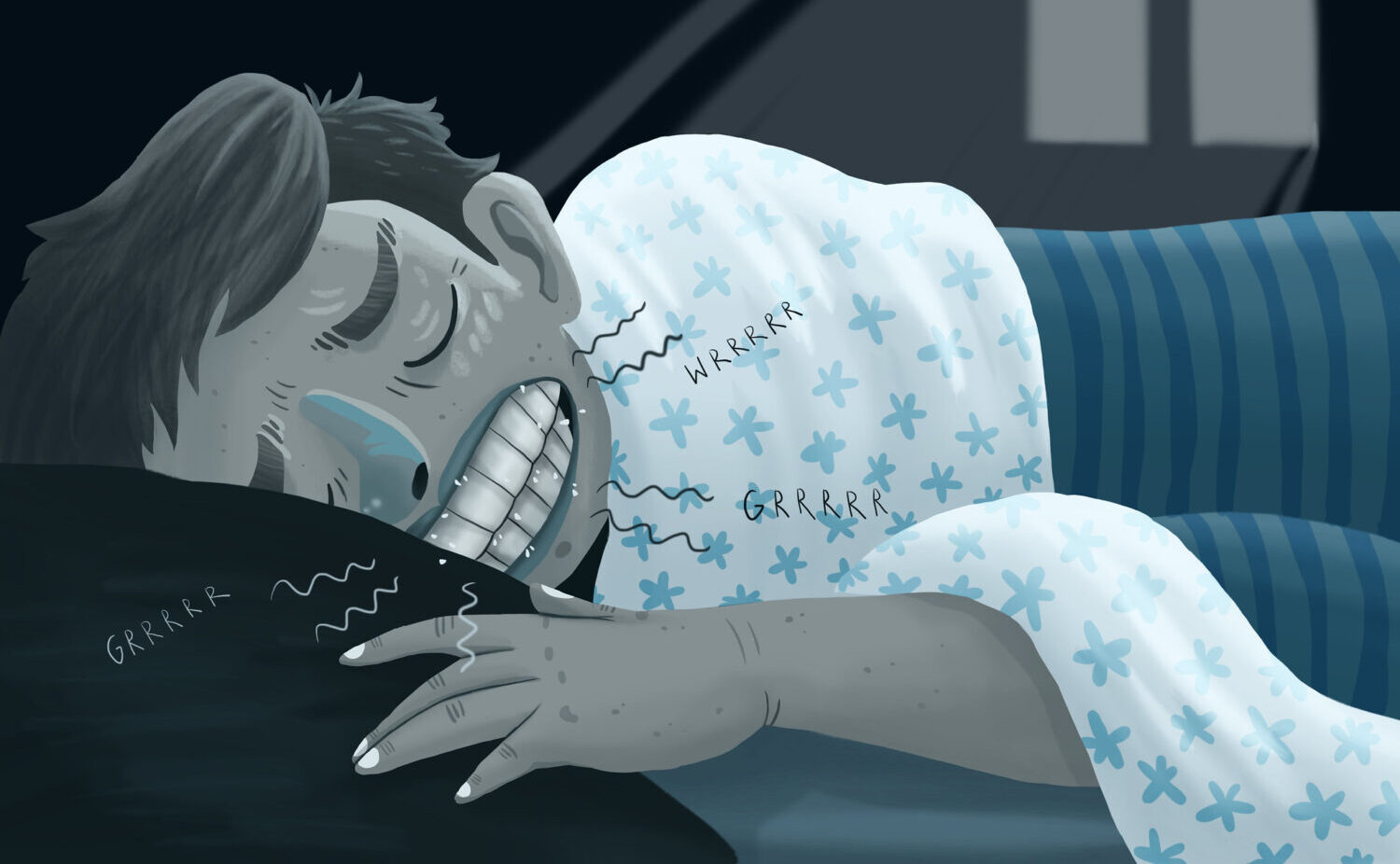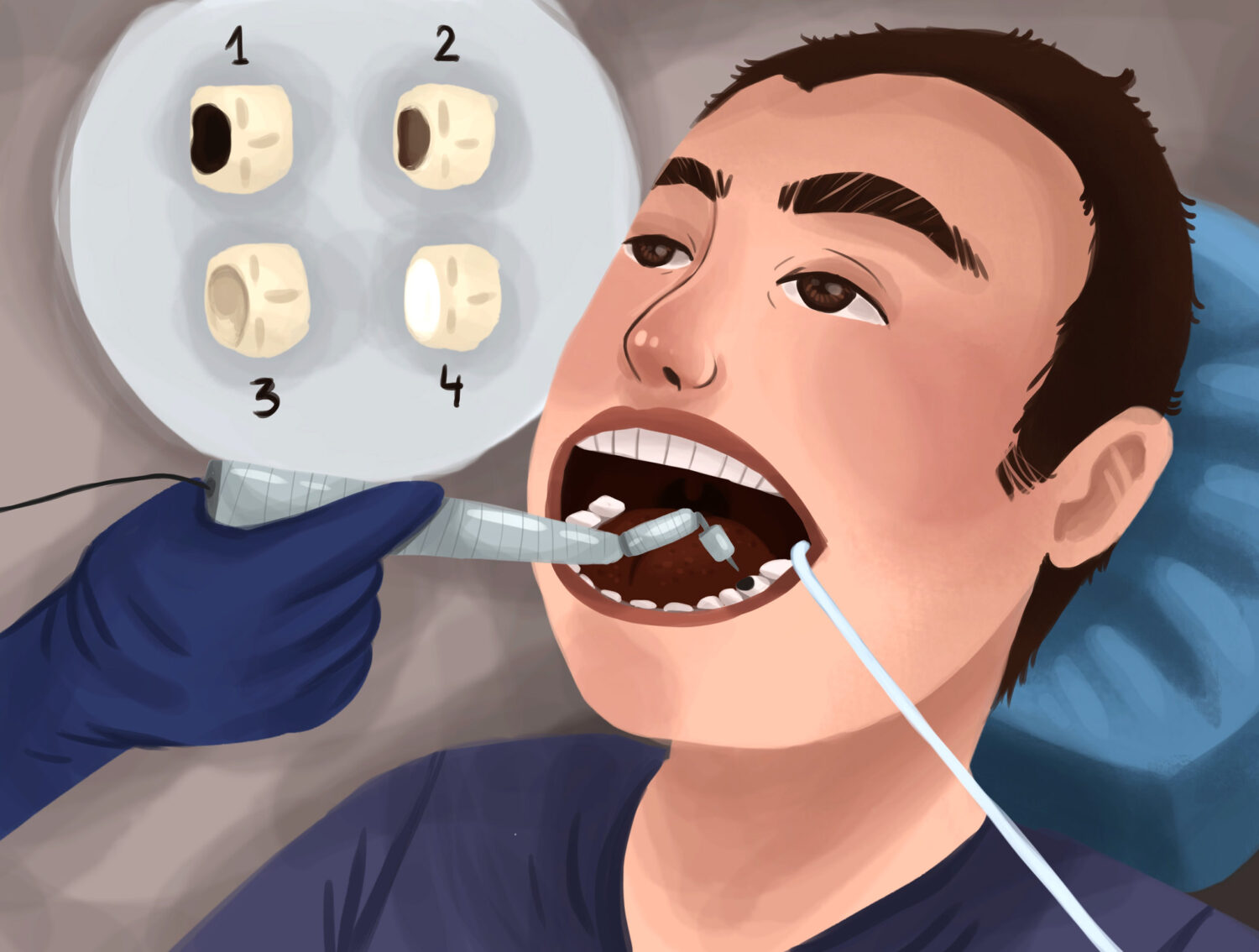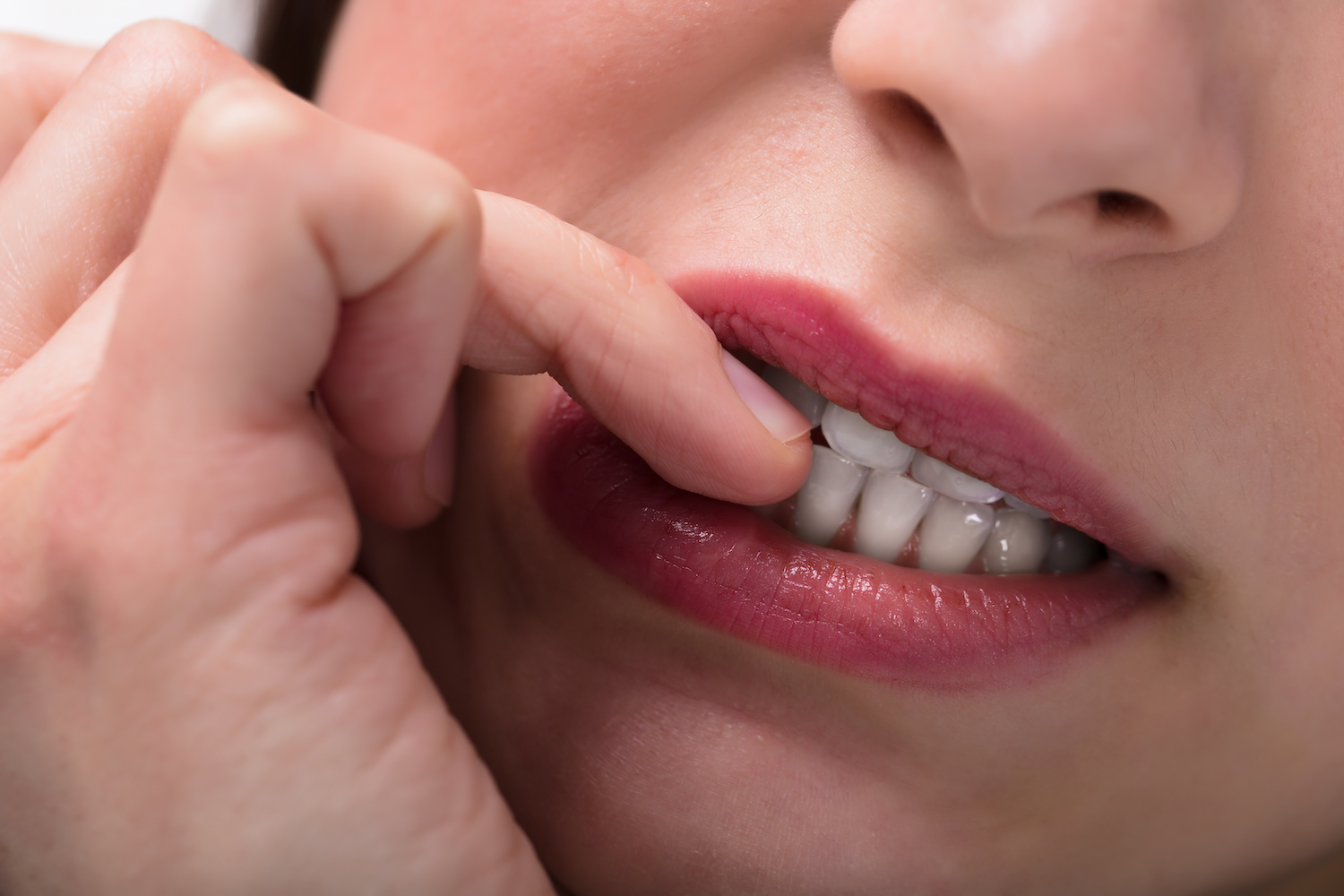In this post, we share practical and interactive ideas for parents to celebrate Children's Dental Health Month with their kids.
How Teeth Grinding Affects Your Oral Health

Teeth grinding image from Authority Dental under CC 2.0
Teeth grinding and clenching, or bruxism, can be triggered by feelings of increased stress, frustration, anger, and anxiety. It can occur subconsciously during the day or as you sleep.
Tooth Damage
Continual grinding can wear down the top of the teeth and make them more susceptible to tooth decay and infection. The jaw muscles are also some of the strongest muscles in the human body, so frequently clenching your teeth together can lead to cracked and broken teeth as well as damaged dental restorations.
Sensitivity & Gum Infection
Bruxism can irritate the gums, causing them to recede. The newly exposed areas on the teeth may feel more sensitive than the rest of their teeth. As receding gums pull away from the teeth, pockets form that can accumulate bacteria. This increases your risk of infection and tooth loss.
Jaw Pain
Chronic teeth grinding and clenching go hand in hand with TMJ problems. When patients clench their teeth during the night, they are placing a lot of pressure on their temporomandibular joints. These are the joints that connect the jawbone to the skull. Excessive pressure on these joints can cause jaw soreness, stiffness, face and ear pain, and difficulty chewing or opening the mouth all the way. In serious cases, the jaw can actually become dislocated, and surgery can be required.
Teeth Grinding Treatment
If you suspect that you may be grinding your teeth at night, please bring this up with our team. You may benefit from a custom nightguard to protect your teeth and gums from the negative effects of bruxism. This nightguard can act as a barrier to prevent the teeth from damaging each other and relieve your jaw from excessive force as you sleep.
We also recommend consulting with other care providers, such as your primary care provider, a licensed therapist, or fitness trainer. You may benefit from talk therapy, exercise and/or yoga, meditation, or other methods of relaxation..









